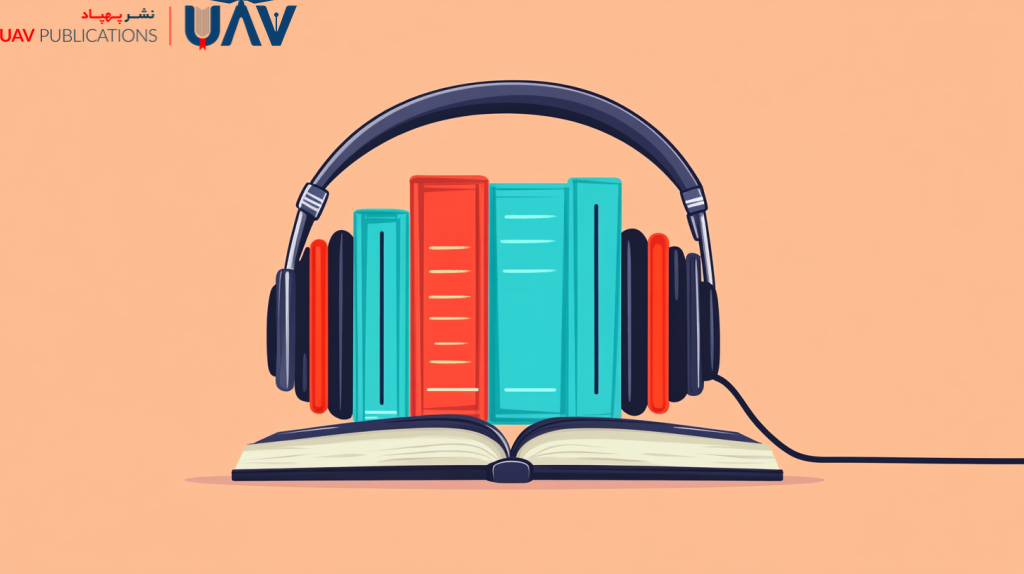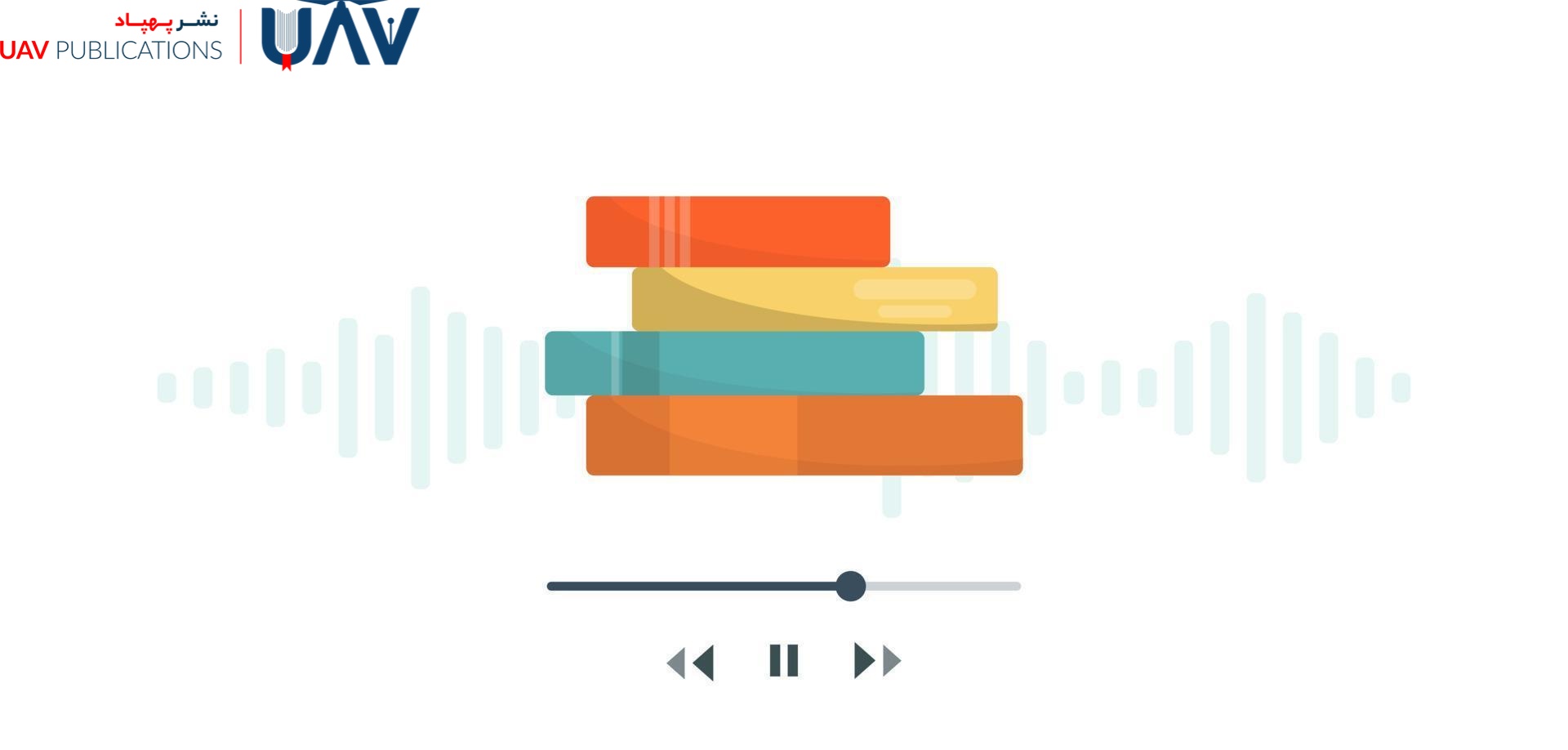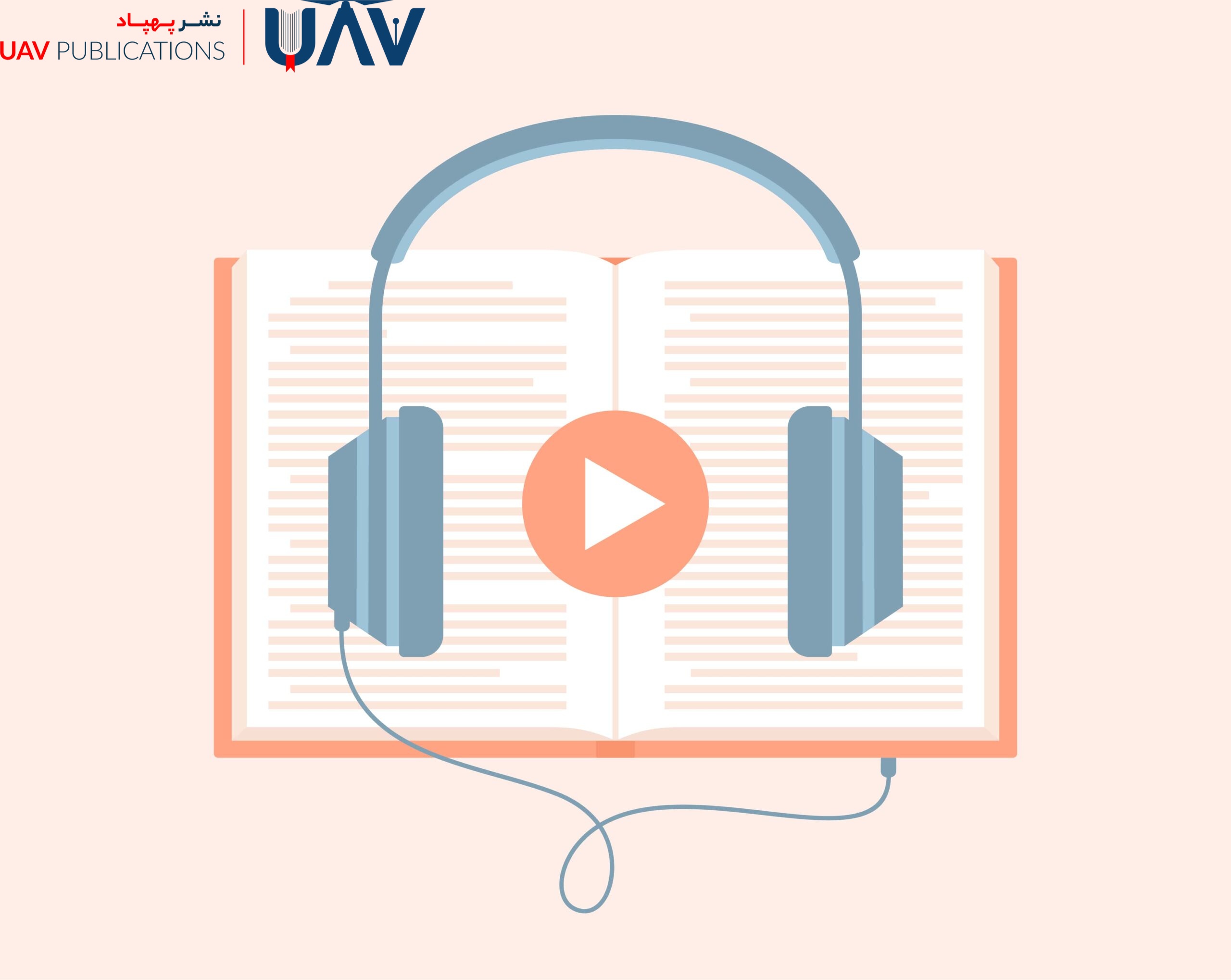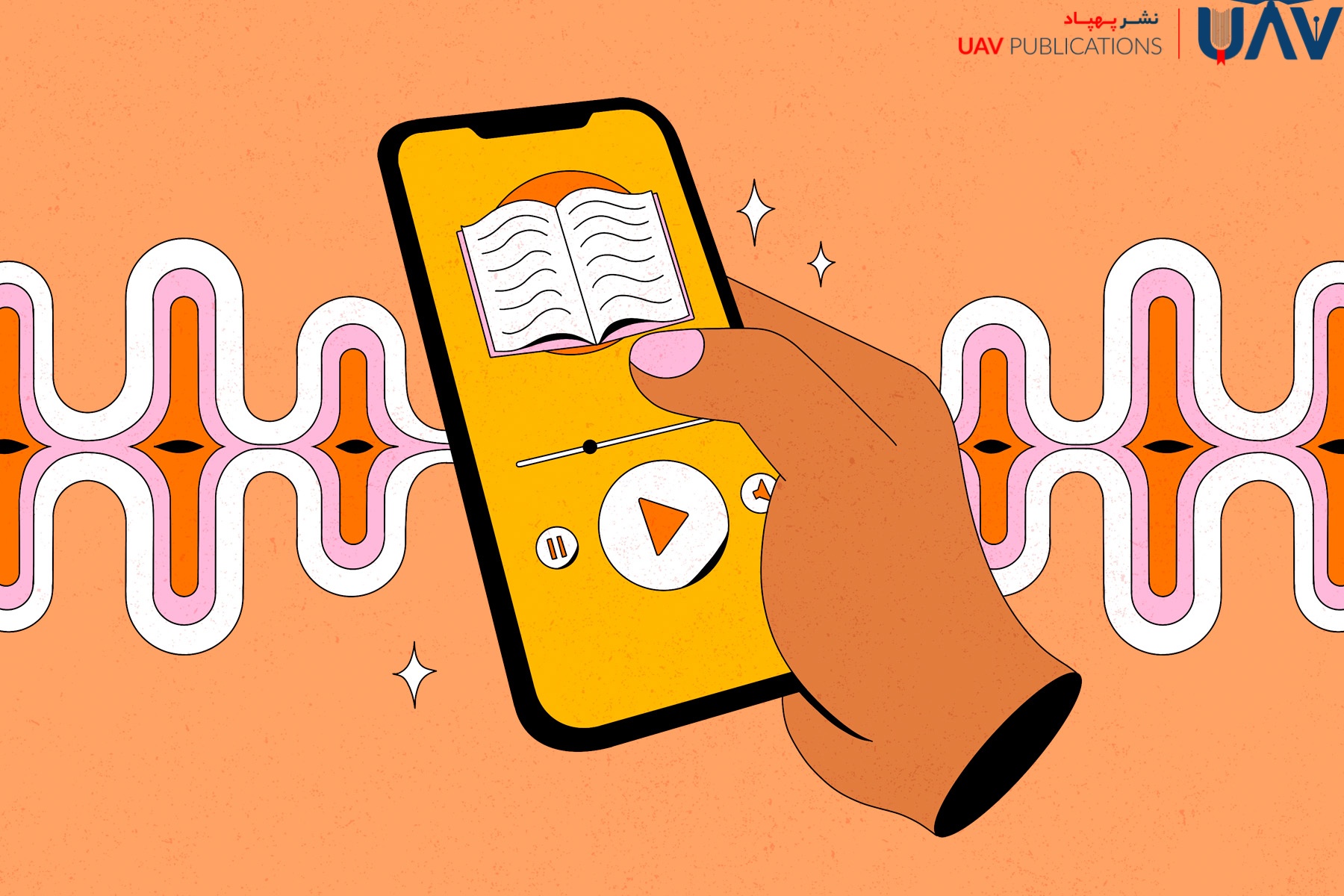Why do audiobooks deserve a place in your life?
In an era defined by rapid pace, endless obligations, and constant time constraints, traditional reading methods no longer suffice for everyone. Sitting quietly, flipping through pages, and maintaining prolonged concentration on printed text has become a rare luxury for many. In such circumstances, audiobooks have emerged as an innovative and practical response to the challenges of modern life, carving out a special niche for themselves.
Audiobooks allow us to “read” even amid busy commutes, long waits, or while engaging in daily tasks. This form of listening-based reading is not merely a substitute for traditional reading—it offers a renewed connection to words, ideas, and narratives. It redefines the reading experience, freeing it from the confines of time and place, and offers moments of learning, reflection, and calm amidst our fast-paced lives.
Audiobooks: A New Bond with the World of Words
In our fast-moving digital world, one challenge seems nearly universal: a lack of time for reading. With our schedules filled with meetings, traffic jams, and everyday responsibilities, finding uninterrupted moments to sit with a physical book often feels like a distant dream. Audiobooks, however, offer a flexible and intelligent solution. They are books we hear, but their impact lingers in both heart and mind.
Through audiobooks, we can transform idle moments—such as driving, walking, or waiting—into opportunities for personal growth and intellectual enrichment. This article takes a scientific, analytical, yet compassionate approach to exploring why listening to books might be one of the most rewarding cultural and personal choices of our modern age. Join us, and let’s explore the world of stories waiting to be heard.
How Audiobooks Have Changed Our Reading Habits
Among all the changes technology has brought to our lives, few have transformed our cultural habits as profoundly as the audiobook. Blending knowledge, voice, and narrative, audiobooks elevate the act of reading to an entirely new experience. Where we once needed time, quiet, and good lighting to read, now we need only a playback device—often just a pair of headphones.

There are many reasons why listening to books has become a compelling option for millions around the world. From saving time to enabling access anytime and anywhere, audiobooks adapt to the rhythms of modern life. In what follows, we will examine the diverse advantages of choosing audiobooks. Whether you’re seeking new learning methods, enjoying stories, or maximizing your daily routine, the auditory path is an inspiring one.
Why Listen to Audiobooks Instead of Reading Printed Books?
As digital technologies reshape our habits, the way we read has evolved, too. Audiobooks have emerged as a dynamic alternative, particularly for those leading busy lives. Unlike printed books, which demand visual focus, a quiet environment, and good lighting, audiobooks can be consumed while on the move or during everyday tasks.
For people who lack time to sit and read or experience visual fatigue, audiobooks offer a practical and enjoyable solution. Far from being a mere supplement to printed books, they often serve as a meaningful and effective replacement.
A Brief History of Audiobooks
Although the popularity of audiobooks has surged in recent years with the rise of smartphones and the internet, their roots stretch back to the 1930s. Institutions like the Library of Congress first created audiobooks on vinyl records to assist the visually impaired. Audiobooks gained broader appeal in the 1970s with the advent of cassette tapes, and their reach expanded further with the introduction of CDs, MP3s, and eventually online platforms. Today, audiobooks are not only a source of entertainment and education, but also a powerful tool for promoting literacy in the digital age.
Audiobooks and Environmental Sustainability
As awareness of environmental concerns grows, digital alternatives that reduce resource consumption are gaining importance. Audiobooks, being entirely digital, contribute significantly to reducing paper use and preserving forests. It’s estimated that producing just one ton of paper requires cutting down about 17 trees. Now, imagine the environmental toll of making millions of printed books.

By eliminating the need for paper, printing, transportation, and packaging, audiobooks leave a smaller carbon footprint and help reduce waste in the publishing industry. Thus, choosing audiobooks is not only a practical decision but also an environmentally responsible one.
How Audiobooks Align with Our Fast-Paced Lives
Traffic, noise, and hectic schedules are the hallmarks of urban life. For many, finding quiet time to read a traditional book is increasingly complex. Audiobooks provide a flexible and intelligent solution tailored to our modern routines. They make it possible to read while commuting, doing chores, or even during brief moments of rest.
Audiobooks liberate reading from the confines of libraries and living rooms, weaving it seamlessly into the flow of everyday life. Even on the busiest days, they make room for personal growth, learning, and literary enjoyment.
Reducing Stress Through Audiobooks
Reading—primarily narrative fiction—has long been recognized as a stress-relieving activity. Audiobooks, with their unique characteristics, often deepen this effect. The narrator’s tone, pacing, and emotional delivery can offer a meditative experience.

Listening to stories or inspirational content at the end of a stressful day helps clear the mind and induce a sense of calm. This can be especially beneficial in improving sleep, reducing anxiety, and easing mental fatigue. That’s why many psychologists recommend audiobooks as a tool for promoting mental well-being.
Audiobooks: A Bridge to Rare and Hard-to-Find Content
Many books are challenging to find in print due to limited translations, restricted publishing rights, or simply being out of print. Audiobooks remove these barriers, making a vast range of titles available to the public. Digital platforms now offer audiobooks across numerous genres and languages, providing access to materials that may not be available in printed form otherwise.
In doing so, audiobooks help democratize access to literature, education, and culture.
A Richer Alternative to Television
While digital media and social networks dominate our attention, they often contribute little to personal or intellectual growth. Audiobooks, by contrast, offer an enriching, mind-expanding experience. They let you turn idle screen time into opportunities for learning and enjoyment.
Whether replacing TV time or reducing mindless scrolling, audiobooks allow you to engage with meaningful content that expands your horizons.
Convenience and Accessibility of Audiobooks
One of the most significant advantages of audiobooks is their convenience. Unlike print books, which require specific conditions for reading, audiobooks can be enjoyed anytime and anywhere—on the subway, in the car, or during a walk.

This is particularly helpful for individuals with busy schedules or those who spend a significant amount of time commuting. Audiobooks make reading a mobile, accessible activity that fits into even the most hectic routines.
Improving Listening Skills Through Audiobooks
Audiobooks don’t just enhance general knowledge—they also sharpen listening skills. Exposure to professional narrators trains the ear, improving auditory comprehension over time. This has benefits in both academic and professional settings.
Since audiobooks are typically read with accurate pronunciation and intonation, they also help improve speech clarity and verbal communication.
Supporting Language Learning Through Audiobooks
For language learners, audiobooks are among the most effective tools available. Listening to native speakers helps learners absorb natural rhythms, correct pronunciation, and conversational flow.

Audiobooks expand vocabulary, reinforce grammar, and build listening comprehension, making them an ideal companion for anyone seeking to master a new language.
Making the Most of Idle Time
Modern life is filled with “dead time”—waiting in lines, sitting in traffic, or riding public transportation. Audiobooks turn these moments into opportunities. Instead of wasting this time, you can use it to listen to books and continue learning, growing, and being inspired.
This boosts productivity and integrates reading into your day in a seamless, efficient way.
Expanding Access to Academic and Specialized Resources
Audiobooks today go beyond fiction and narrative. A growing number of academic and professional texts are now available in audio format. For students, researchers, and professionals, this is invaluable.

By making complex materials accessible in audio form, audiobooks facilitate deeper engagement with specialized content, even on the go.
Boosting Memory and Focus Through Audiobooks
Listening to audiobooks activates different parts of the brain responsible for memory and comprehension. Studies have shown that processing spoken information can enhance the brain’s ability to retain and recall details.
Additionally, active listening requires and builds focus. Over time, this can enhance overall cognitive performance, particularly in professions where concentration is crucial.
Improving Sleep Quality
One of the lesser-known but influential benefits of audiobooks is their role in enhancing sleep quality. For many, winding down after a stressful day is difficult. Audiobooks with soothing content can ease the mind, reduce intrusive thoughts, and promote relaxation.
By listening to a calming book before bed, you can create a healthy sleep routine and even combat insomnia and sleep disturbances.
Audiobooks as a Source of Creative Inspiration
Audiobooks can spark creativity and critical thinking. By immersing yourself in different narratives, styles, and ideas, you’re more likely to think innovatively and approach problems from fresh perspectives.
This is especially valuable for writers, artists, and designers looking for inspiration. Audiobooks invite the mind to wander—and to create.
Accessing Cultural and Historical Knowledge.

Audiobooks aren’t limited to contemporary works; they also encompass classic literature. Many classic texts, historical documents, and cultural treasures are now available in audio format. These works offer rich insights into past eras, broadening your artistic and intellectual horizons.
They offer not only education but also a deeper appreciation for human history and society.
Enhancing Persian Language Skills
Audiobooks are helpful not just for learning foreign languages but also for refining one’s command of one’s native tongue. For Persian speakers, listening to complex narratives improves familiarity with advanced structures and diverse vocabulary.
They provide a natural way to strengthen both spoken and written expression in one’s mother language.
Bringing Books to Underserved Areas
Historically, accessing diverse printed books has been challenging for individuals in remote or underserved areas. Audiobooks break this barrier. With a simple internet connection, individuals anywhere in the world can access a wide array of titles.

This levels the playing field and brings knowledge to communities that may have once been excluded from traditional publishing.
The Future of Audiobooks
Audiobooks are already among the most popular forms of reading today, but the future holds even more promise. From innovative audiobook platforms to integration with AI technologies, the audiobook landscape is constantly evolving.
These innovations will ensure that audiobooks continue to be a dynamic and relevant force in how we read, learn, and connect with stories.

